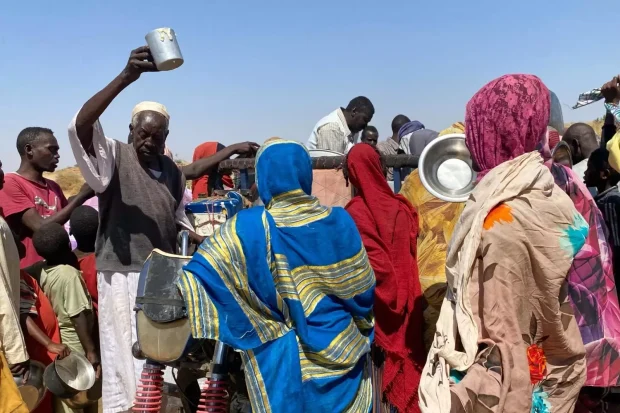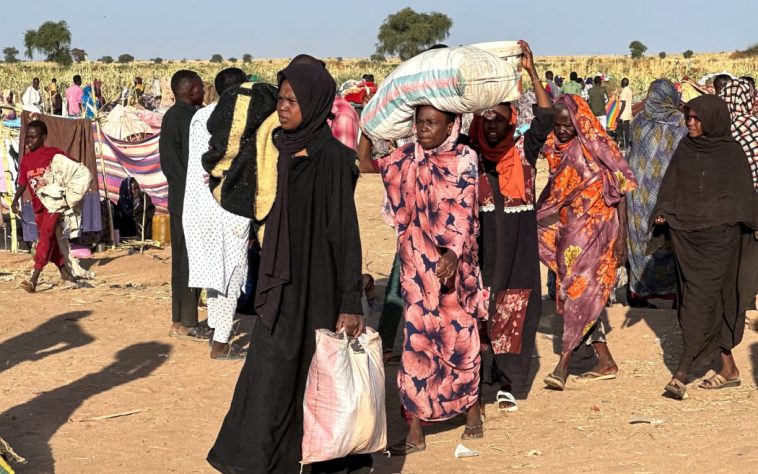Over 36,000 civilians have fled Sudan’s central Kordofan region as clashes escalate between the army and the paramilitary Rapid Support Forces (RSF), the United Nations reported. The mass displacement follows last week’s capture of El-Fasher by RSF fighters. Kordofan has emerged as the latest battleground in the ongoing conflict that began in April 2023.

The region is strategically important, linking Darfur to Sudan’s Khartoum-Riverine heartland. According to the UN migration agency, 36,825 people fled five localities in North Kordofan between October 26 and 31. Residents reported a sharp rise in RSF and army activity across towns and villages, signaling increased violence.
Both forces are competing for control of El-Obeid, the North Kordofan state capital. The city is a key logistics hub connecting Darfur to Khartoum and hosts an airport, making it strategically vital. RSF fighters have strengthened their presence north of El-Obeid, while the army has deployed more troops west and south of the city.
Civilians described growing fear and disruption. Suleiman Babiker, a resident of Um Smeima west of El-Obeid, told AFP that RSF vehicles surged after El-Fasher fell. “We stopped going to our farms, afraid of clashes,” he said. Another local, speaking anonymously, confirmed the army also increased vehicles and heavy weapons around the city over the past two weeks.
Martha Pobee, UN assistant secretary-general for Africa, warned of “large-scale atrocities” and “ethnically motivated reprisals” by RSF forces in Bara. She drew parallels to Darfur, where RSF fighters have been accused of mass killings, sexual violence, and abductions targeting non-Arab communities.
The conflict has already killed tens of thousands and displaced nearly 12 million people. It has triggered the world’s largest displacement and hunger crises. Civilians in Kordofan remain trapped between the warring forces. They face violence, food shortages, and an uncertain future. With battles around El-Obeid intensifying, the humanitarian situation is expected to worsen, leaving thousands more at risk in the coming weeks.
Discover more from ULIZA LINKS NEWS
Subscribe to get the latest posts sent to your email.



